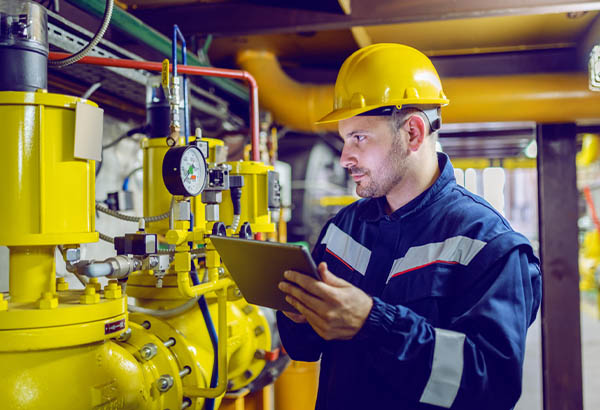
An API Training Course
API 521 : Pressure Relieving and De-Pressuring Systems
Scheduled Dates
Classroom
| 02 - 06 Mar 2026 | Dubai - UAE | $5,950 | RESERVE A SEAT |
| 13 - 17 Apr 2026 | Dubai - UAE | $5,950 | RESERVE A SEAT |
| 20 - 24 Jul 2026 | Dubai - UAE | $5,950 | RESERVE A SEAT |
| 15 - 19 Mar 2027 | Dubai - UAE | $5,950 | RESERVE A SEAT |
Online
| 20 - 24 Jul 2026 | Online | $3,950 | RESERVE A SEAT |
Would an alternative date be more suitable?
We offer a variety of tailored training options, customized to meet your organisation's needs. Delivered anytime, anywhere, we make it easy to bring expert training directly to your team.
Why Choose this Training Course?
In order to have an effective depressurization & vapor relief system; you need to know how you can select, size & operate it. This PetroKnowledge training course is applicable to pressure-relieving and vapor de-pressuring systems. The training course is applicable to petrochemical facilities, gas plants, liquefied natural gas (LNG) facilities, and oil and gas production facilities. Pressure vessels and other equipment require relief devices to provide overpressure protection to prevent conditions that may cause serious injuries to personnel, costly mechanical damage and environmental releases. The training course gives you specific detailed guidelines for evaluating a relief system, including determining the applicability of overpressure scenarios, required relief rates, and relief device capacity. Flare system calculations such as flare thermal radiation zone & purge gas rates is also included.
This PetroKnowledge training course will highlight:
- Fundamentals of Pressure Relief Valve Design & Operation
- Overpressure Scenarios
- Selecting and designing disposal systems, including such component parts as piping, vessels
- Selection & design of the flares, and vent stacks
What are the Goals?
For many decades of the last century. Process vents and pressure relief flows were directed, individually or collectively, to the atmosphere unburned. Gases separated from produced oil were also vented to the atmosphere unburned. The custom of unburned venting began to change later when increased environmental awareness and safety concerns created the desire to convert vents to continuously burning flares.
By the end of this training course, participants will learn to:
- Understand the importance of pressure relief systems and their key principles
- Select and size appropriate relief devices (e.g. Pressure safety valves)
- Calculate flare header thermal radiation zones & purge rates
- Understand the flare system equipment operations & maintenance
- Understand the zero flare principles
Who is this Training Course for?
This program addresses the needs of a diverse audience with an interest in pressure relieving & flare systems. This training course is suitable to a wide range of professionals but will greatly benefit:
- Process Engineers involved in relief & flare selection and sizing
- Operation Engineers who have oversight responsibility for flare design & operation
- Technical personnel & supervisors involved in supporting relief flare operation
How will this Training Course be Presented?
This interactive Training will be highly interactive, with opportunities to advance your opinions and ideas and will include;
- Lectures
- Workshop & Work Presentation
- Case Studies and Practical Exercise
- Videos and General Discussions
Organisational Impact
All companies are trying to set up a safe, reliable & compliant operations; hence their employees such as process & operation engineers shall have a full understanding of vapor relief & flare systems:
- Improve organization integrity
- Enhance organization KPI
- Reduce operation losses
- Achieve the class excellence in operations management
Personal Impact
Poor handing of Pressure-relieving and De-pressuring Systems has the potential to asset damage & personnel incidents which will be the worst scenario ever. This course will have impact on the personal as follows:
- Understand the hierarchy of protective measures
- Aware of the pressure relief causes & actions required
- Best practices in relief system & flare operations
- Special consideration when selecting & sizing these systems
- Health & safety aspects associated with operation & maintenance of the relieving systems
Daily Agenda
Day One: Introduction to Pressure Relief Valve Design & Operation
- Codes & standard
- Overpressure Scenarios
- Causes of over pressure and their relieving rates
- What is pressure safety valve?
- Major components of the pressure safety valve
- Types of pressure safety valve
- Conventional pressure safety valve
- Balanced bellows pressure safety valve
Day Two: Relief System Protection Philosophy
- Role of instruments in relief & flare systems
- Overpressure prevention during maintenance
- Pilot Operated Pressure Safety valve
- PSV selection criteria
- PSV operation problems
- Rupture disks types & operations
- Vent stacks considerations
Day Three: Flare Systems Sizing & Operations
- Function of the flare system
- Flare system configuration & description
- Cold flare Operations
- Exercise - Flare System P&ID read & plan
- Flare system design & selection criteria (Flow, composition, temperature … etc)
- Safety & Environmental regulations for the flare operations
- Flare types classification (Elevated – Ground)
- Steam & Air Assisted Flares
- Sonic flare definition
- Single & Multi Point Flares
- Burn Pits Operation, Selection & Environmental regulations
Day Four: Relief System Process Engineering Calculations
- Line sizing
- PSV Sizing & Calculations
- Thermal radiation & safe zone calculation
- Flare Purge Gas Calculations
- Knock Out drum diameter sizing
Day Five: Relief & Flare Safety Considerations
- Vapor relief & flare system safe operations
- Guidance on vacuum effect
- Flare & HSE regulations
- Venting to atmosphere considerations
- Air Pollution
- Relief & flare systems commissioning & start up hazardous
Certificate
- On successful completion of this Training Course / Online Training Course, a PetroKnowledge Certificate / E-Certificate will be awarded to the delegates.
